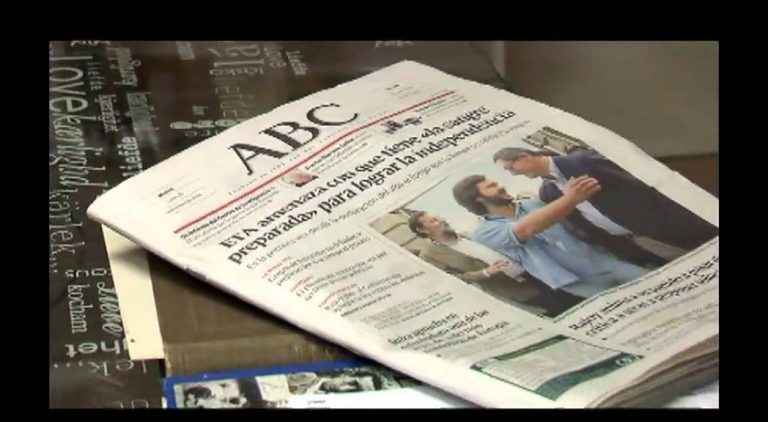Contenidos
La noria programa de televisión
Where are you heart antenna 3
You already know the story. A few days later, under pressure from Internet users, several brands announced that they were withdrawing their advertising from the program. One by one, all their advertisers fell off the air: Puleva, Bayer, Nestlé, Panrico, L’Oreal, Vodafone, WC Net, Pronto, El Corte Inglés, Burger King… For the first time in television, a program was left without advertising.
Three weeks after this historic leak, the network admitted that it had made a mistake that was detrimental to its brands and that it was its responsibility to fix it. To do so, the network cancelled the programs Resistiré, ok? and Enemigos íntimos, asked for a ‘whitening’ of its programs and called an emergency meeting with advertisers to avoid a contagion effect to other programs such as Sálvame.
After this ‘historic’ pardon, some advertisers began to return to the program. However, the program was already mortally wounded and the network decided to send it to late night in January and create a new prime time program with more political weight called El Gran Debate. It was only the beginning of the renovation, since at the end of April, the Fuencarral network decided to cancel La Noria and give its space to an expanded version of El Gran Debate.
Saturday deluxe wiki
This journalist and blogger makes a positive review of what the Internet is. How we used to live in a completely vertical model in which the media dominated the what, how, who, when and where, now a model is imposed in which the so-called fourth power is available to any citizen. How communication objectives can be achieved with a good strategy, consistent, coherent and adapted to the needs.
In this book, with a foreword by Toni Garrido and an epilogue by Enrique Dans, he aims to present a manual that encourages everyone to make use of this power and demonstrates that anyone can change the world by using the right tools. And as an example, in addition to giving advice on how to take advantage of the social web to improve a company, how to make your blog and your personal brand have influence or address cyberactivism, he tells in first person the experience lived with the Telecinco program La noria.
Jordi didn’t know me at all, of course, and my tweets that day and the day before would go unnoticed among the hundreds or thousands he received mentioning him. The vast majority, by the way, much less polite than mine. I took the wheel and spent two hours driving while I thought it all over. I didn’t want to write a post that would make the front page of Menéame, as it used to happen, and be seen by 10 or 15,000 people and then die.
Viva la vida program
La noria premiered on Saturday, August 25, 2007 in prime time, weekly and hosted by Jordi González and Gloria Serra. The program was born with the aim of washing the channel’s image and move away from the aggressive heart of its predecessor Sábado Dolce Vita (previously called Salsa rosa).
Since its inception, La noria accumulated a historical average of 17.4% share and almost 1.9 million (1,882,000) viewers, being the absolute leader of its Saturday night slot with almost 4 points and more than 400,000 viewers ahead of Antena 3’s offer (13.8%).
However, to avoid its cancellation, Mediaset created a new program with a format very similar to La noria but more serious, called El gran debate with the intention of delaying the broadcasting of La noria until the late night slot, so, from January 14, 2012, it was broadcast after this new space.[5][6] Finally the program was removed from the grid.[7] The program was removed from the grid.
La noria programa de televisión 2021
La Noria fue un programa de entrevistas español producido por la empresa La Fábrica de la Tele que se emitió en la cadena de televisión española Telecinco desde 2007 hasta 2012. El programa estaba conducido por Jordi González y su colaboradora especial, Sandra Barneda, aunque fue Gloria Serra quien le ayudó varios años antes. Se emitía semanalmente, todos los sábados a las 0:30 horas. El 14 de abril de 2012 se emitió su último episodio. Después ocupó su lugar el programa El gran debate[1].
La Noria comenzó a emitirse el 25 de agosto de 2007 en horario de máxima audiencia. A partir de entonces, se emitiría semanalmente, conducido por Jordi González y Gloria Serra. El programa nació para lavar la imagen de agresividad que su antecesor, Sábado Dolce Vita (antes llamado Salsa Rosa), había dejado en la cadena.
Desde su inicio, La Noria reunió una media histórica del 17,4% de share y casi 1,9 millones de espectadores,[2] convirtiéndose así, con diferencia, en el programa más visto de la franja nocturna de los sábados, cerca de cuatro puntos y más de 400.000 espectadores más que la oferta de Antena 3 (13,8%).





